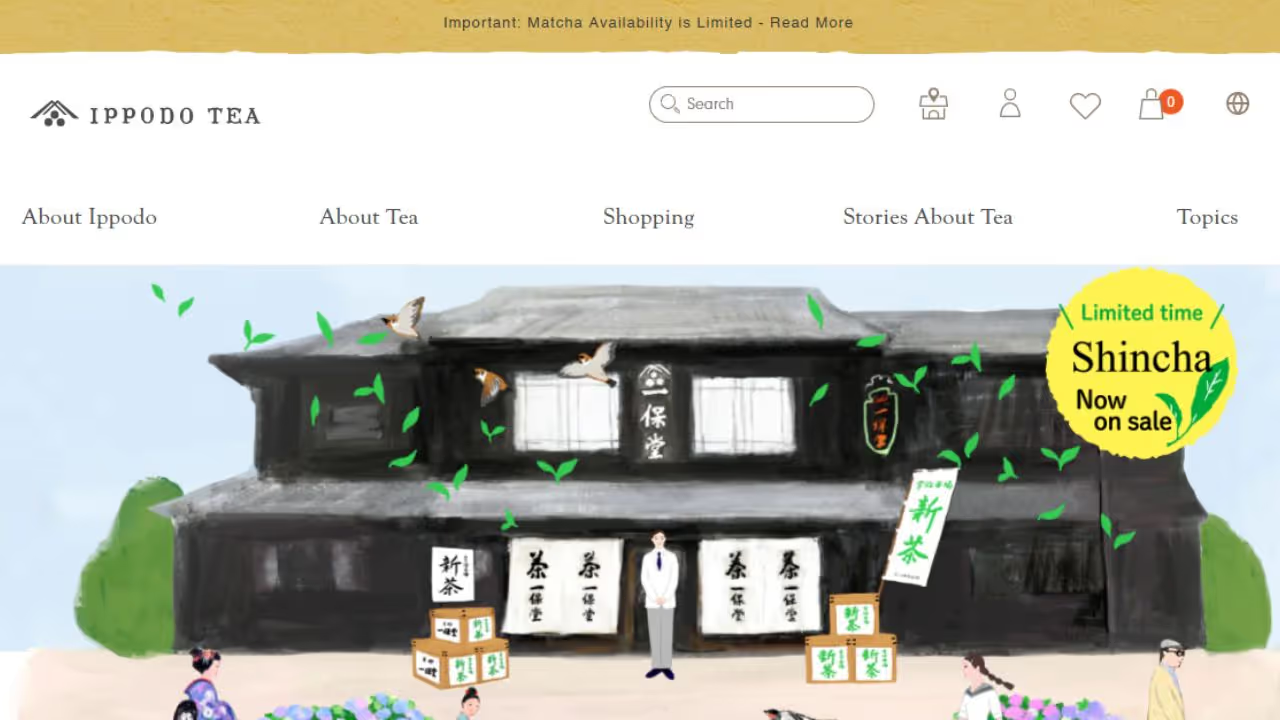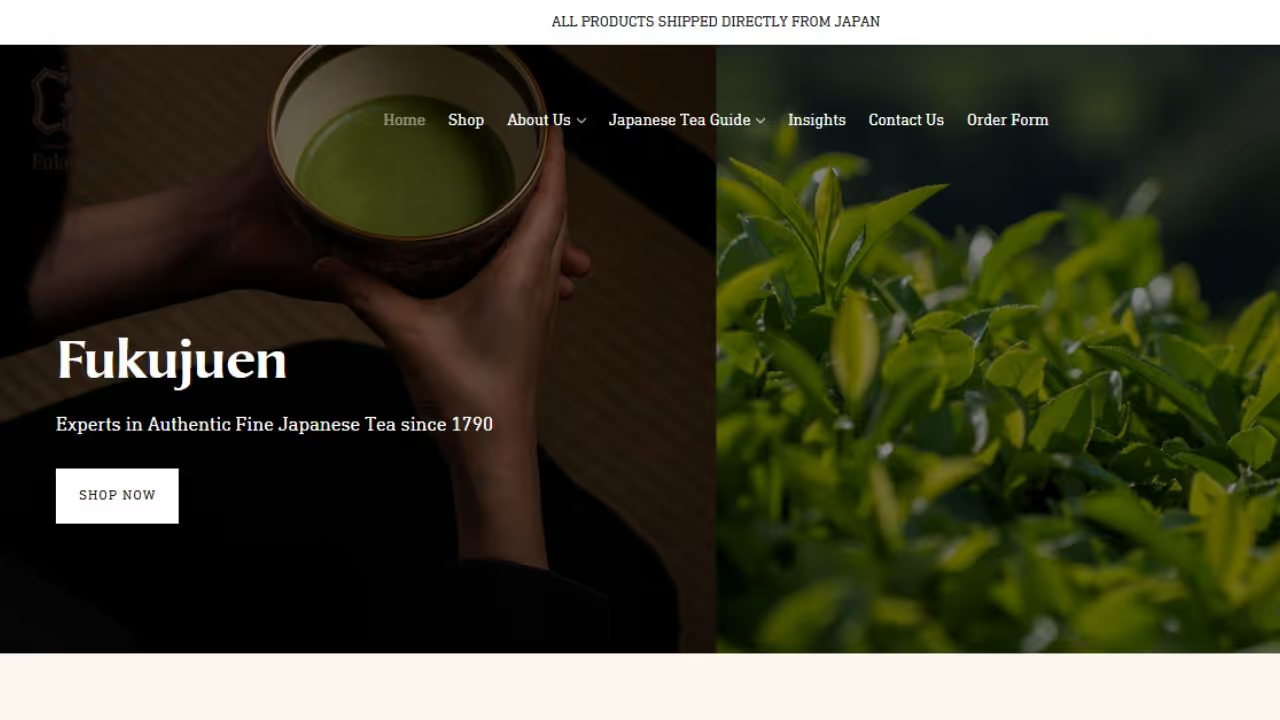Top 7 Must-Try Japanese Tea Loved By Locals

Japan’s tea culture is integral to daily life and tradition, rooted in centuries of history and refined through meticulous craftsmanship. While travelers may be familiar with a few well-known teas like matcha or sencha, it’s the local brands—quietly steeped in heritage and trusted by generations—that offer an authentic taste of Japan. From bottled green teas you’ll find in vending machines to artisanal matcha used in formal tea ceremonies, Japan’s favorite tea brands reflect a culture that values purity, balance, and harmony in every cup.
What sets Japanese tea brands apart isn’t just the flavor or quality of the leaves—it’s the attention to detail in cultivation, the regional pride in tea-growing areas like Uji and Shizuoka, and the way tea is seamlessly woven into everyday routines. Whether enjoyed hot or cold, at home or in a traditional tea house, tea in Japan is more than a beverage—it’s a ritual, a refreshment, and a reflection of hospitality. Below are Japan's most beloved tea brands, each with a unique legacy and loyal following among locals.
Japanese Tea Brands Loved by Locals
- Ito En (伊藤園)
- Yamamotoyama (山本山)
- Marukyu Koyamaen (丸久小山園)
- Ippodo Tea (一保堂茶舗)
- Tsujiri (辻利)
- Fukujuen (福寿園)
- Morihan (森半)
1. Ito En (伊藤園)

Source: Ito En Homepage
Among Japan's most recognized tea brands is Ito En, synonymous with accessible, high-quality green tea. Famous for their bottled line Oi Ocha, Ito En has made it incredibly easy for busy commuters and casual tea drinkers to enjoy authentic Japanese green tea on the go. The unsweetened version of Oi Ocha is especially popular, with a clean, refreshing taste that appeals to a broad range of palates.
Locals love Ito En not just for its convenience but also for its variety. The brand offers everything from budget-friendly sencha to specialty teas for at-home brewing. Its sustainability efforts and direct relationships with tea farmers have also earned it trust, making it a reliable favorite in homes, offices, and lunchboxes across the country.
2. Yamamotoyama (山本山)

Source: Yamamotoyama Homepage
Founded in 1690, Yamamotoyama is one of the oldest tea companies in Japan. This Tokyo-based brand is known for its dedication to traditional tea production and exceptional quality. While the company also produces premium nori seaweed, its reputation in the tea world—especially for sencha and genmaicha—is well-established.
Japanese families have long considered Yamamotoyama a trusted name when it comes to tea, which they can enjoy daily and serve to guests. Genmaicha blends green tea with roasted brown rice and is particularly popular for its warm, nutty aroma and comforting taste. Whether served hot in the winter or chilled in the summer, it’s a household staple that’s stood the test of time.
3. Marukyu Koyamaen (丸久小山園)

Source: Marukyu Koyamaen Homepage
For those serious about matcha, Marukyu Koyamaen commands deep respect. Based in Uji, Kyoto—considered Japan’s spiritual home of green tea—this family-run brand has been cultivating and refining matcha for over 300 years. It supplies tea not only for home use but also for formal tea ceremonies, earning praise from tea masters and connoisseurs alike.
Marukyu Koyamaen stands out in its commitment to excellence at every stage, from growing and harvesting to grinding and packaging. Their Matcha Tenju is among the highest grades available, featuring a velvety smooth texture and deep umami flavor that leaves a lasting impression. Locals who are particular about quality often choose Marukyu Koyamaen when they want matcha that’s truly exceptional.
4. Ippodo Tea (一保堂茶舗)

Source: Ippodo Tea Homepage
Another Kyoto treasure, Ippodo Tea, has been serving discerning tea lovers since 1717. Known for its pure and expertly blended green teas, Ippodo caters to those who appreciate the subtle complexities of traditional Japanese tea. Its flagship store near Kyoto’s Imperial Palace is a beloved stop for locals and visitors, offering tasting sessions and expert advice.
Ippodo’s teas, such as Gokujo Hojicha and Ummon-no-mukashi Matcha, are prized for their depth and balance. Locals appreciate how the brand honors centuries-old techniques while helping new generations understand how to prepare and enjoy their teas. For many, drinking Ippodo tea is both a personal ritual and a celebration of craftsmanship.
5. Tsujiri (辻利)

Source: Tsujiri Homepage
Founded in Uji in 1860, Tsujiri has become especially popular among younger Japanese consumers and lovers of matcha desserts. Initially founded in Kyoto, the brand has expanded to include stylish cafes and a variety of products that make high-quality matcha accessible at home. Tsujiri is best known for its matcha latte mixes, soft-serve ice cream, and powdered hojicha—all of which have a loyal following.
While Tsujiri honors the legacy of Kyoto tea culture, it also embraces innovation. Many people in Japan turn to Tsujiri when they want to enjoy matcha in a more contemporary, approachable way. It’s a perfect entry point for those new to Japanese tea, offering both convenience and great flavor without compromising authenticity.
6. Fukujuen (福寿園)

Source: Fukujuen Homepage
Founded in 1790, Fukujuen is another celebrated brand from Uji with a long-standing reputation for excellence. It offers a broad range of teas, from everyday drinking blends to luxurious gyokuro and fukamushi sencha. The brand is especially popular as a gift item, with beautifully packaged teas representing taste and thoughtfulness.
Japanese consumers appreciate Fukujuen’s consistent quality and its dedication to preserving the unique characteristics of Uji-grown leaves. Whether you’re sipping a light sencha in the morning or savoring a more intense gyokuro in the evening, Fukujuen provides an experience that feels both grounded in tradition and deeply personal.
7. Morihan (森半)

Source: Morihan Homepage
If you step into a Japanese supermarket, you’re likely to find Morihan products lining the tea aisle. Known for its affordability and solid quality, Morihan is the go-to choice for many families. The brand’s matcha au lait powder and hojicha tea bags are especially popular for their simplicity and versatility.
Morihan is perfect for those who want to incorporate Japanese tea into their daily life without the formality or high cost. It’s also commonly used in cooking and baking, with many home cooks using their matcha powder for sweets and desserts. Morihan represents a reliable, no-fuss option for locals that delivers flavor and convenience.
Conclusion
Whether it’s a cold bottle of Ito En on a hot day, a cup of Yamamotoyama genmaicha with breakfast, or a bowl of Marukyu Koyamaen matcha during a tea ceremony, each brand tells a story of heritage and taste passed down through generations.
For travelers looking to explore Japan through its flavors, discovering these beloved tea brands is an experience in itself. Not only will you taste the diversity of Japanese tea—from delicate senchas to roasted hojicha and ceremonial matcha—but you’ll also gain insight into the values and lifestyle of the people who drink them every day. The next time you reach for a cup of Japanese tea, remember that it’s a moment of culture, calm, and connection.















